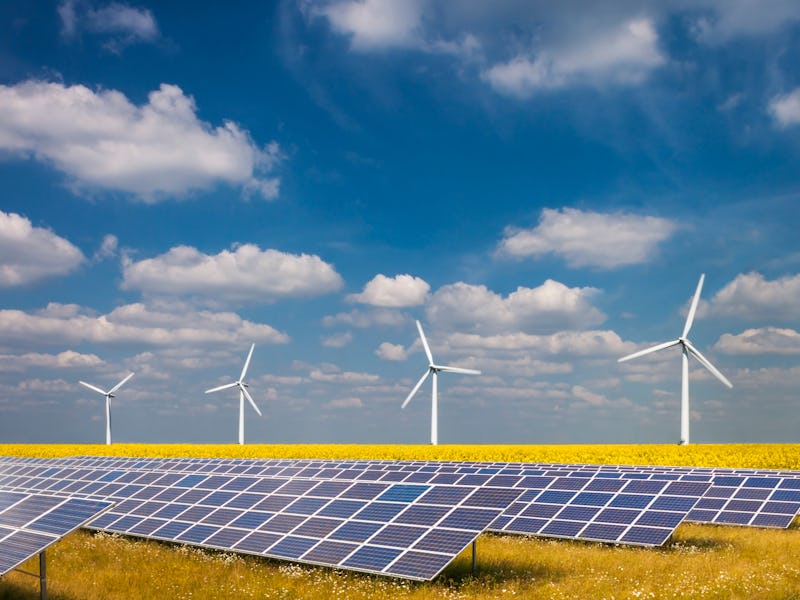Renewable energy could save us trillions in health costs
Just as long as no one gets windmill cancer

If you’re worried about getting “windmill cancer,” we have some good news for you. According to a new study published this week in the journal Environmental Research Letters, installing more renewable energy could save the U.S. trillions in health costs.
Obviously, renewable energy doesn’t pollute like fossil fuels do, but this is a fascinating look at the financial benefits of switching to renewables.
The researchers looked at how installing renewable energy like solar power and wind turbines would benefit both the climate and public health. Depending on the U.S. region where renewable energy is installed, they found it can save an area between $1.7 million and $2.2 trillion in health expenses.
The reason there is such a large difference between how much savings renewable energy would create is that different areas currently have different levels of pollution from fossil fuels, as well as the fact they studied different levels of renewable energy adoption.
Jonathan Buonocore, a research associate at Harvard, and the study’s lead author, tells Inverse that areas with a lot of coal plants have more health problems.
“In the Great Lakes, the Atlantic and the Upper Midwest, it would displace a lot of coal, which is pretty heavily emitting coal, and you have a lot of people downwind,” Buonocore says. “Compare that to a place like California, [where] if you put a lot of renewable energy down, you’re displacing mostly gas, which emits half as much carbon as coal.”
A coal-fired power plant in Minnesota
Coal use puts nitrogen oxides, mercury, sulfur dioxide and particulate matter into the air, which is all very toxic. The worst thing a wind turbine will do is accidentally kill a bird.
Wind turbines producing 3,000 megawatts of electricity would save the Upper Midwest, for example, $2.2 trillion in health costs. Buonocore tell Inverse that if you compare the money saved by capturing carbon from a coal plant to the costs saved by installing solar and wind turbines, you save significantly more with the renewable energy options. He says that beyond health costs that will be saved, you also have to consider other ways in which climate change will be costly, which might include displacement of populations, an increase in infectious diseases spreading around the planet, the effects of extreme weather and more.
See also: By 2080, Mosquito-Borne Disease Will Threaten a Staggering Number of People
In terms of what health issues people are currently dealing with due to things like coal use, Buonocore says they can range from heart problems to respiratory issues to possibly even increased instances of neurocognitive diseases like Alzheimer’s. (I’ll take windmill cancer over Alzheimer’s any day.) Buonocore notes that the study focused on how switching to renewables reduces a population’s risk of dying, which means there would almost certainly be fossil fuel-related healthcare costs they didn’t account for in this study.